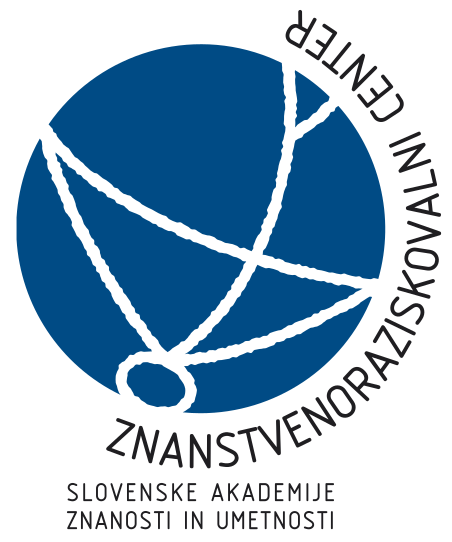Difference between revisions of "Karst Research Institute"
(basic, out of ROBOT) |
|||
| Line 1: | Line 1: | ||
{{Article | {{Article | ||
| − | | status = | + | | status = WRITING TOPROOFREAD NIFERTIK! |
| maintainer = Generic maintainer | | maintainer = Generic maintainer | ||
}} | }} | ||
{{Infobox | {{Infobox | ||
| name = Karst Research Institute | | name = Karst Research Institute | ||
| − | | localname | + | | localname = Inštitut za raziskovanje krasa |
| − | | street | + | | street = Titov trg 2 |
| − | | town = SI-6230 Postojna | + | | town = SI-6230 Postojna |
| mailing address = Znanstvenoraziskovalni center, Slovenska akademija znanosti in umetnosti (ZRC-SAZU), P O Box 306, SI-1001 Ljubljana, Slovenia | | mailing address = Znanstvenoraziskovalni center, Slovenska akademija znanosti in umetnosti (ZRC-SAZU), P O Box 306, SI-1001 Ljubljana, Slovenia | ||
| telephone = 386 (0) 5 700 1900 | | telephone = 386 (0) 5 700 1900 | ||
| Line 13: | Line 13: | ||
| email = izrk@zrc-sazu.si | | email = izrk@zrc-sazu.si | ||
| website = http://kras.zrc-sazu.si/index.php?q=sl | | website = http://kras.zrc-sazu.si/index.php?q=sl | ||
| − | | | + | | managed by = Scientific Research Centre (ZRC SAZU), Slovene Academy of Science and Arts |
| contacts = {{Contact | | contacts = {{Contact | ||
| − | | name = | + | | name = Tadej Slabe |
| role = Director | | role = Director | ||
| telephone = 386 (0) 5 700 1902 | | telephone = 386 (0) 5 700 1902 | ||
| Line 21: | Line 21: | ||
}} | }} | ||
}} | }} | ||
| − | |||
| − | |||
{{Teaser| | {{Teaser| | ||
Karst is a landmark of Slovenia. Almost half of the country is karstic, with about 8,000 registered caves. More than half of the population is supplied by karst waters. The international term karst is derived from the name of Slovene region Kras, an area also regarded as the cradle of scientific discipline - karstology. | Karst is a landmark of Slovenia. Almost half of the country is karstic, with about 8,000 registered caves. More than half of the population is supplied by karst waters. The international term karst is derived from the name of Slovene region Kras, an area also regarded as the cradle of scientific discipline - karstology. | ||
| + | |||
| + | Karstology has become a complex multidisciplinary science, covering a wide range of earth sciences related to karst. A long tradition of excellent research and a unique position at the heart of classical karst have established the [[Karst Research Institute]] as one of the most recognised karstological centres in the world. Several of the Institute's researchers are enrolled also as lecturers in the postgraduate Karstology programme offered by the [[University of Nova Gorica]]. | ||
}} | }} | ||
| − | + | ==Research fields== | |
| − | |||
Karst is the focus of the Institute's research. It studies its hydrology, geology, morphology, ecology, microbiology and speleology, as well as the history of karstology. The Institute's researchers come from various backgrounds, including geology, geography, physics, chemistry, biology and microbiology, thus enabling a multidisciplinary approach. The Institute's research includes field studies, laboratory investigations and numerical modelling. It conducts both basic and applied studies. | Karst is the focus of the Institute's research. It studies its hydrology, geology, morphology, ecology, microbiology and speleology, as well as the history of karstology. The Institute's researchers come from various backgrounds, including geology, geography, physics, chemistry, biology and microbiology, thus enabling a multidisciplinary approach. The Institute's research includes field studies, laboratory investigations and numerical modelling. It conducts both basic and applied studies. | ||
The Institute hosts a karstological library, one of the most complete of its kind, a laboratory specialising in water chemistry, a geological laboratory and a lecture room with modern presentation equipment. | The Institute hosts a karstological library, one of the most complete of its kind, a laboratory specialising in water chemistry, a geological laboratory and a lecture room with modern presentation equipment. | ||
| − | + | ==See also== | |
| + | * [[Scientific Research Centre (ZRC SAZU), Slovene Academy of Science and Arts]] | ||
== External links == | == External links == | ||
| − | *[http://kras.zrc-sazu.si Karst Research Institute website] | + | *[http://kras.zrc-sazu.si Karst Research Institute website] |
[[Category:Research]] | [[Category:Research]] | ||
Revision as of 22:33, 17 March 2011
Research fields
Karst is the focus of the Institute's research. It studies its hydrology, geology, morphology, ecology, microbiology and speleology, as well as the history of karstology. The Institute's researchers come from various backgrounds, including geology, geography, physics, chemistry, biology and microbiology, thus enabling a multidisciplinary approach. The Institute's research includes field studies, laboratory investigations and numerical modelling. It conducts both basic and applied studies.
The Institute hosts a karstological library, one of the most complete of its kind, a laboratory specialising in water chemistry, a geological laboratory and a lecture room with modern presentation equipment.



